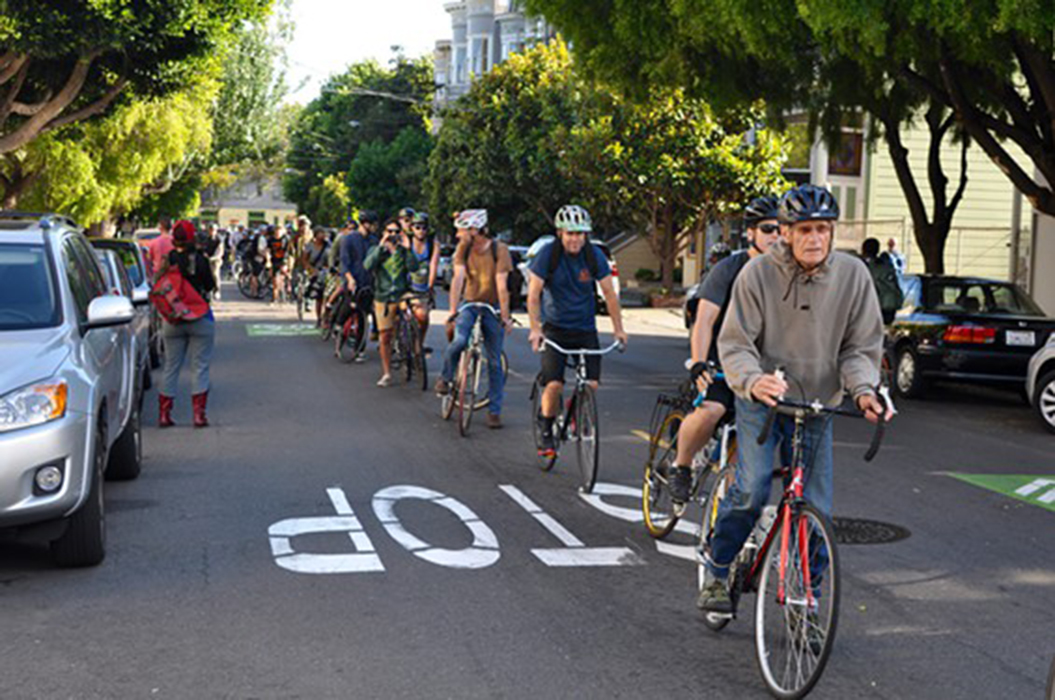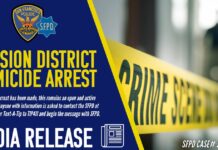SAN FRANCISCO—The Lower Haight and Duboce Triangle neighborhoods experienced heavy traffic as San Francisco bicyclists blocked the roads during the Wiggle Stop-in, a protest to San Francisco Police Department’s law requiring bikers to come to a complete stop at stop signs.
Traffic came to a standstill around 5:30 p.m. on Wednesday, July 29, in neighborhoods along the “Wiggle” path. Streets along the bike path included Duboce, Scott, Waller, Haight, and Pierce. Protestors rode their bikes and made complete stops at each sign before waiting to proceed, causing traffic for drivers and bikers alike.
The protest was organized by The San Francisco Wigg Party, a community organization based along the Wiggle path dedicated “to facilitating the transformation to sustainability and resilience in the Lower Haight and Panhandle neighborhoods of San Francisco.” The Wigg Party is a self-proclaimed leader in the city’s effort to promote transformation in regards to sustainability and resilience. According to the organization’s website, the Wiggs work with neighboring organizations to create sustainable business consulting, local food initiatives, re-skilling, and transforming the city to be more environmentally friendly.
The protest is in response to the city’s Vision Zero Commitment, whose mission statement is “Zero traffic deaths in San Francisco by 2024.” The effort was created by San Francisco’s city officials based on the statistics that over 70 percent of severe to fatal collisions occur on approximately 12 percent of San Francisco’s streets. After the formation of Vision Zero, there was a crackdown on cyclists who are not compliant with the rules of the road.
The Wiggs stated that their organized “wiggle stop-ins” will be necessary in conveying the point that the crackdown is an unnecessary
The group said additional “wiggle stop-in” events will show that these crackdowns are unnecessary and “diverting resources away from the deadliest traffic violations.”
Police Chief, Greg Suhr, stated that “less than 1% of all citations go to cyclists,” and that the city will not encourage traffic violations; “bicycles are considered vehicles and need to follow the rules of the road.”







